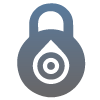#6 Freedom to stay anonymous: How to defend yourself against online surveillance
This is the sixth blogpost of our series dedicated to privacy, security and freedoms. In this series, we explain how your freedoms are under threat, and what you can do to fight back.

Online anonymisation: What is it and how does it work?
There are many ways in which you are identified when you use the internet, like tracking cookies, comparing data about your emails, SMS and chats, and the information you voluntarily give out (such as Facebook “likes”). Today we are online and connected, one way or another, most of the time, and exposing your identity can be a threat to your online freedoms. That’s why more and more people use online anonymisation tools to use the internet without being identified.
Online anonymisation can limit your exposure to mass surveillance. There’s an increasing number of initiatives around the world to attack our privacy with different excuses, such as “fighting terrorism”. That’s why the need to defend yourself from surveillance is more important than ever before. Although no measure is perfect, and it’s very difficult to protect yourself from targeted surveillance, using these tools can improve your privacy to a great extent.
How to claim back your freedom to stay anonymous
There are many ways of making identifying you online more difficult.
You should always delete your cookies and not save your browsing history (you can change this in the settings or preferences of your browser). Other easy solution to bring anonymity to your life is to start using Tor browser and search engines like DuckDuckGo or Startpage. Also, the use of privacy protective Virtual Private Networks (VPNs) is becoming more common among those who want to keep their internet use private.

Ricochet is an anonymous peer-to-peer instant messaging application which also anonymises your communication metadata.

Traditional cloud storage services such as Google Drive and Dropbox can be replaced with Spideroak Semaphor, as this provides better privacy and anonymity protection.

When you don’t want to store the file, but just share it with a group of people anonymously, you can use Onionshare. It allows you to securely share files of any size over a Tor network.

If you want to tackle the issue of anonymity at the operating system level, you should consider using Whonix along with QubesOS.
In the first episode of the “Do Not Track” webseries produced by ARTE TV, you will find more useful information about how much data we generate every day and how online tracking exposes a lot of private information:
What can politicians do to safeguard your freedoms online?
The rules on online privacy in the EU (ePrivacy Directive) will be soon updated. This law deals with privacy and confidentiality of communications for the entire EU, and it affects tracking and other issues related to your freedoms online. Are politicians ready to fight for your protection?
Read our previous blogposts here, and stay tuned to our next blogposts to know more about your freedoms online, and how they are threatened!


